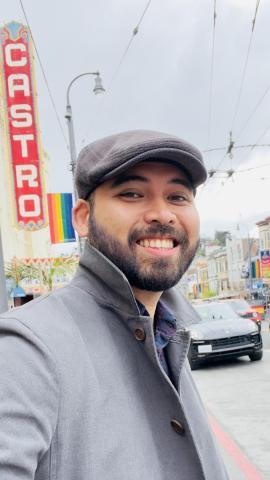Richard Karl Deang
M.A. Anthropology, University of Virginia
M.A. Comparative Literature, University of the Philippines
B.A. European Languages, University of the Philippines
Specialties
friendship, queer theory, linguistic anthropology, multimodal interaction analysis, medical anthropology, care and community, worldbuilding, global health, COVID-19, HIV/AIDS, Manila, San Francisco
Dissertation
“Queer Friendships: The Afterlives of AIDS and the Language of Shared Futures”
As COVID-19 disrupted social life around the world in 2020, the emergent health crisis was extensively compared with the only other currently active global pandemic, HIV/AIDS. According to UNAIDS, a key learning for COVID-19 is the central role played by affected communities in responding to HIV/AIDS since the 1980s. “Queer Friendships” views interpersonal relationships as the building blocks of communities. It explores the ways in which the two pandemics have reconfigured how people make friends and care for each other in moments of crisis—from the “healing power of touch” in the 1980s HIV/AIDS outbreak to the rise of videoconferencing and social media in the time of COVID-19 and physical distancing.
The project brings together ethnography, oral history, multimodal interaction analysis, and queer theory to examine the social, communicative, and moral processes of friendship among two queer communities: long-term AIDS survivors in San Francisco, widely considered the global gay mecca and the first epicenter of HIV/AIDS, and HIV advocates in Manila, the city with the fastest-growing HIV/AIDS epidemic today. The central claim advanced by the research is that such friendships have served not only as fertile ground for community-building, but also as a model for a cosmopolitan politics defined by an openness to alterity, shared utopian aspirations, and joint actions toward the achievement of alternative social worlds.
“Queer Friendships” invites anthropologists, community health stakeholders, and queer scholars alike to reconsider the meanings and purposes of queerness and friendship in people’s shared pursuits of the good life.
